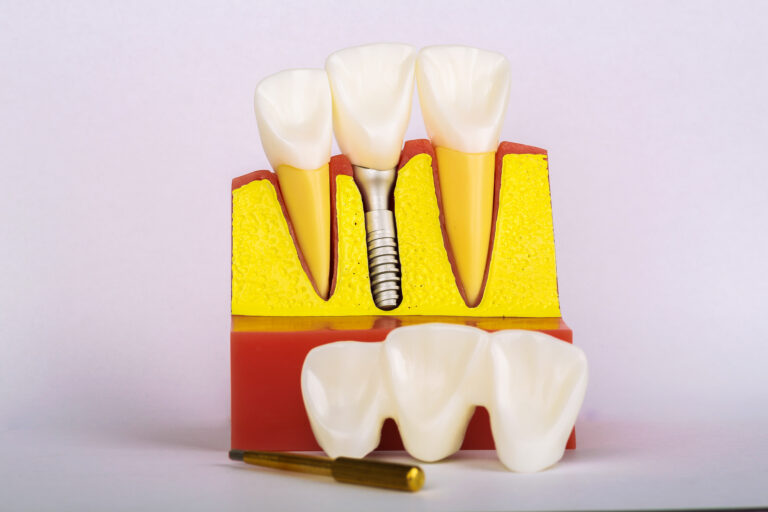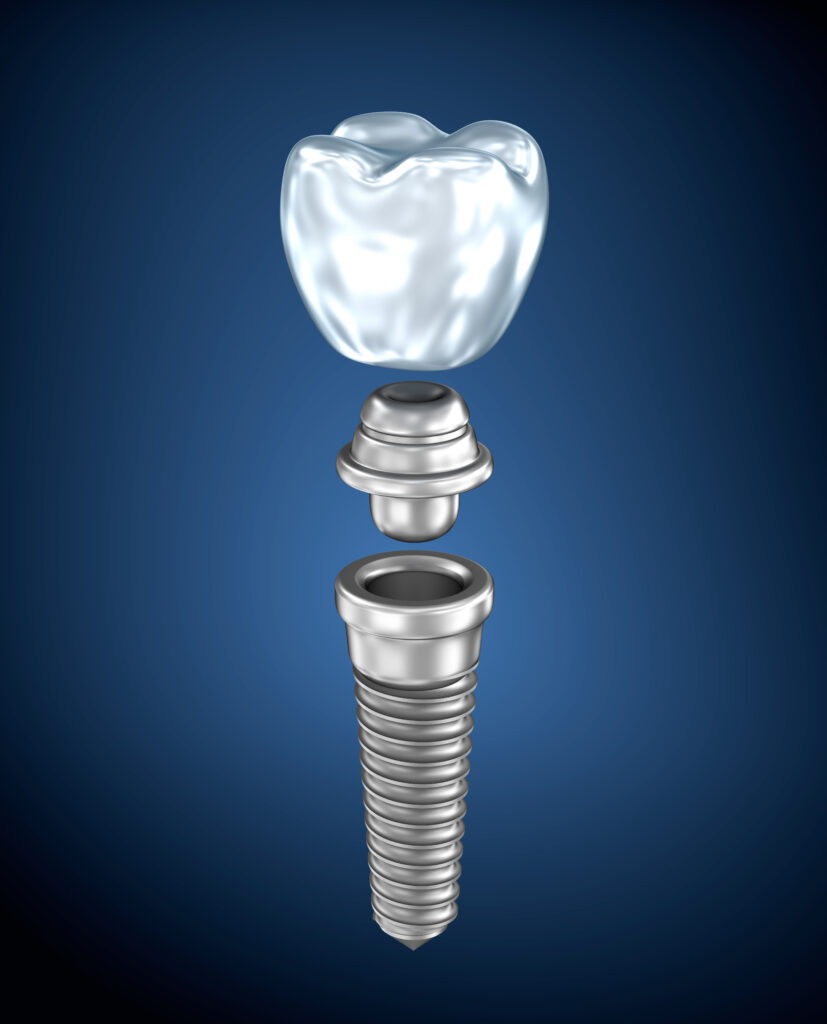Family Dental Nogales – Premium Dental Care For Everyone
At Family Dental Nogales, our patients receive the most competitive pricing in the entire region. We do this by implementing a well-dedicated strategy that involves advanced dental technology, our very own dental laboratory, and a small team of top-performing specialists. By working more efficiently, we are able to save money and in turn, pass those savings on to our patients.
We owe our success to our team of professionals. Our patients continue to choose us as their primary dental care provider due to the simple fact that we offer them amazing guarantees, high-end dental equipment, and quality treatment plans that are performed by exceptional specialists with years of experience. In short, when you set an appointment with us at Family Dental Nogales, you are coming for peace of mind, knowing that you’re getting the best possible care and prices available.
Your dental implant treatment will be carried out by some of the best dentists and specialists in the entire region. On top of this, our dental office is well-equipped with cutting-edge medical technology and is ready to give you high-quality dental care, at an affordable cost.

People travel to Mexico for dental implants for a variety of reasons, the most common of which is cost. Mexico’s healthcare costs are far lower than those in the United States which means huge benefits for U.S. citizens. Patients can expect to save upwards of 75% on nearly all dental treatments.
In addition, Mexico is close to the U.S. Those who are lucky enough to live relatively near the border can easily travel to Mexico for dental implants and receive equivalent treatment for a far lower cost than what you would pay in the United States.
Mexico’s health infrastructure has been ranked high by the World Health Organization (WHO). This is due to highly experienced and trained personnel, cutting-edge equipment and medical technology, and worldwide accreditations for some of the country’s most prestigious hospitals.

Dental implants are metallic screws that are implanted in your bone. They act as a replacement for your natural tooth roots.
Dental implants, unlike dentures that rely on bone, are permanent and stable.
Following implant implantation, a process known as “osseointegration” occurs in which the bone and the implants fuse together.
Bone loss in the lower and upper jaw is reduced with dental implants. Dental implant methods, like dentures, provide for immediate tooth function.

Single Tooth Replacement. If you are missing just one tooth, a single implant will be placed and topped with a dental crown.
Several Teeth Replacements. When many teeth are missing, at least two implants will be placed in your bone, and a dental bridge will be placed on top of them.
Full-Mouth Reconstruction. All of your lost or damaged teeth are replaced in full-mouth reconstructive operations. Full mouth rehabilitation treatments such as All-on-4, All-on-6, and All-on-8 are popular.
Because the implant lacks the cushioning layer that normal teeth have, it will have a distinctive sensation. Many patients have said that after a while, they didn’t even notice the implants were there.
A natural tooth has a crown (the visible part) and a root (the hidden part) (which lies inside the jawbone). The root is replaced by the implant in a dental implant. This component is constructed of titanium, a biocompatible material. The exposed area is replaced with a porcelain or zirconia crown. The crown is the same color as the neighboring teeth, making it difficult to spot. As a result, the implant will appear to be a natural tooth in terms of appearance.
You can return to work the next day after surgery if you take proper care of your implants as advised by your dentist. The pain and discomfort will only last a few days and can be managed with the medication provided.
Depending on the circumstances, your dentist may advise you to stay for a few days after surgery to ensure that any issues are addressed promptly.
Dental implants can last a lifetime if properly cared for. Dental implants had a 94.6 percent survival rate after a 10-year follow-up.
Implant survival is mostly determined by the patient’s overall health and bone condition. Aside from these factors, food, cleaning procedures, and behaviors such as smoking all play a role in the implant’s lifetime.
The most crucial weeks are the first few. This is the time when the implant and the bone fuse together.
In most cases, the implant operation can be completed in two to three sessions.
1st Visit: Implant insertion might take anything from 5 to 12 days. You will be fitted with a temporary prosthesis (artificial teeth) that will allow you to eat normally.
Visit 2: 3-6 months after the first visit, this visit is arranged. The implantation of porcelain teeth or dentures might take up to 5 days.
If you need bone transplant surgery, you may need to return for another appointment.
Dental implants have a higher success percentage when pre-surgery procedures are performed. These are the following:
Bone graft surgery: If you don’t have enough bone to support the implants, you may need to have bone transplant surgery. The new bone may take 4-6 months to grow and be suitable for implants.
Tooth extraction: If you get a full mouth repair, you may need to have teeth extracted. Extraction is a procedure that involves the removal of damaged teeth and their replacement with artificial teeth.
You may also require operations such as scaling, RCT, and filling. They lower the risk of infection following surgery.
Bone grafting is required in people who have poor jaw bone quality. Bone grafting is a procedure that employs natural or artificial bone to fill up a gap left by bone loss.
Bone graft surgery can be avoided in some circumstances with an All-on-four implant treatment since it takes 4-6 months for the bone to build a strong enough structure to sustain the implant.
One of the most common causes of implant failure is smoking. Nicotine reduces the blood supply to the areas of the body that demand nutrients and oxygen from the blood. Smoking can have a negative impact on your oral health even before you have implants. Only if you are a good candidate will you be given the option of implants.
According to a study, the success rate of dental implants in smokers is lower than in non-smokers.
Yes. Some Mexican dentists offer a two- to five-year warranty on their work. It is possible that those who smoke will not be qualified. You can speak with your MTC case manager to learn more about the warranty.
No. This is one of the most common dental myths.
Appropriate efforts are taken to ensure that the patient is pain-free.
Anesthesia can be administered locally or all over the body. This will numb the area and prevent you from feeling anything.
For the first 72 hours after surgery, swelling and pain are common. To alleviate the swelling and agony, you will be prescribed the appropriate medication.
If the pain or swelling does not go away, you should see your dentist to rule out any potential concerns.
A bridge is a type of tooth replacement that replaces one or more missing teeth. The two adjacent teeth are capped, and in the middle, a pontic (artificial tooth) is affixed.
This means that two natural teeth support your prosthesis on both sides. The disadvantage of this procedure is that the two natural teeth will have to be heavily cut to accommodate the crowns.
However, just the space left by the missing tooth is employed in an implant surgery. A crown is placed over an implant that is embedded in the bone. This is accomplished without involving the neighboring teeth in any way.
Dental implants are the best option for replacing missing teeth caused by accident or decay. They’re the greatest thing you can do for both your smile and general oral health. For more information on dental implants or the advantages of selecting a Nogales-based dentist, call Family Dental Nogales at (520) 455-7894

Av. López Mateos No. 172 – Suite C.
Colonia Fundo Legal Nogales
México 84030
USA: (520) 285-6072
Mexico: (631) 312 1561
Mon-Fri: 9:00 AM – 6:00 PM
Sat: 8:00 AM – 2:00 PM
Sunday: Closed
Copyright © 2024 Family Dental Nogales